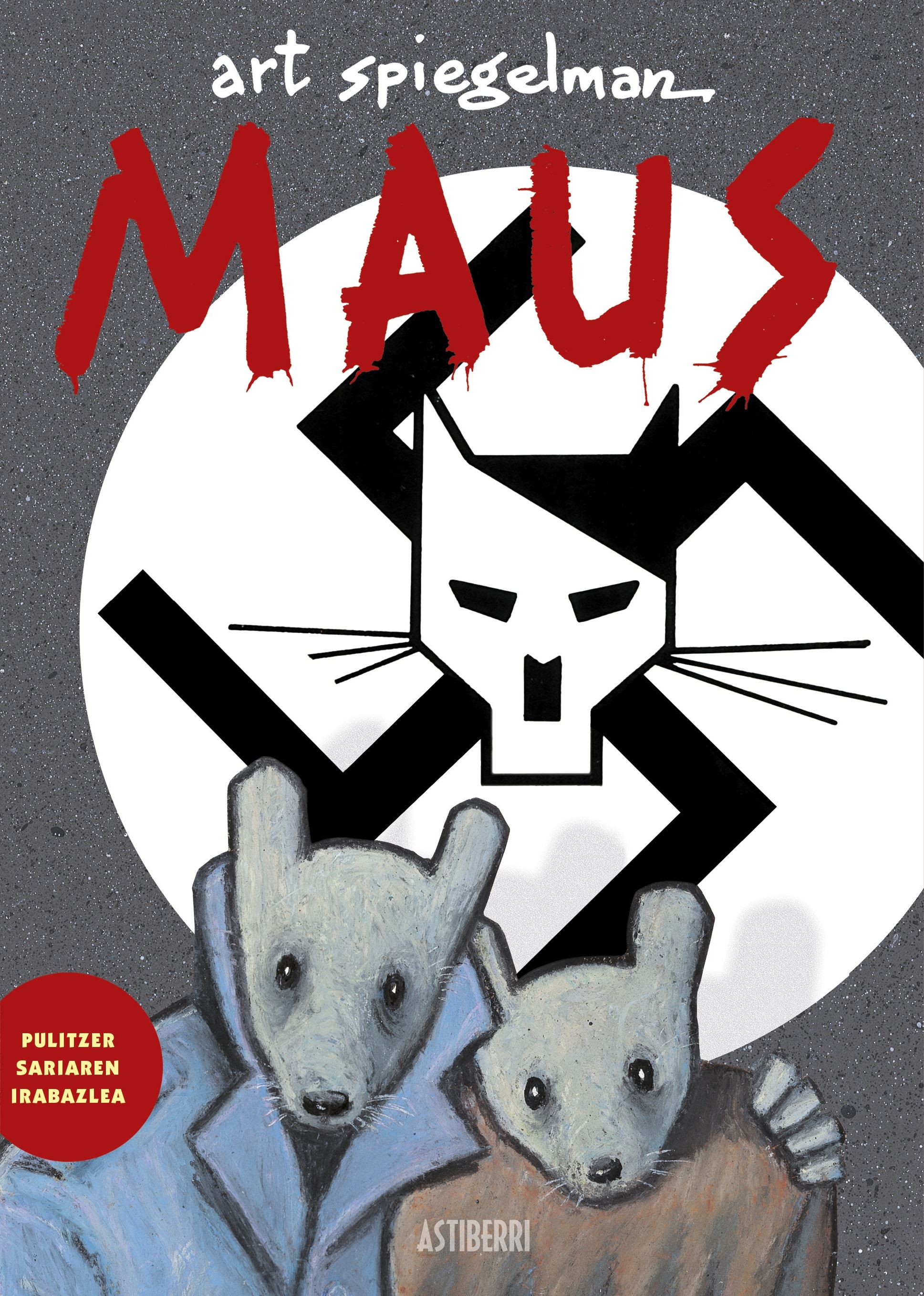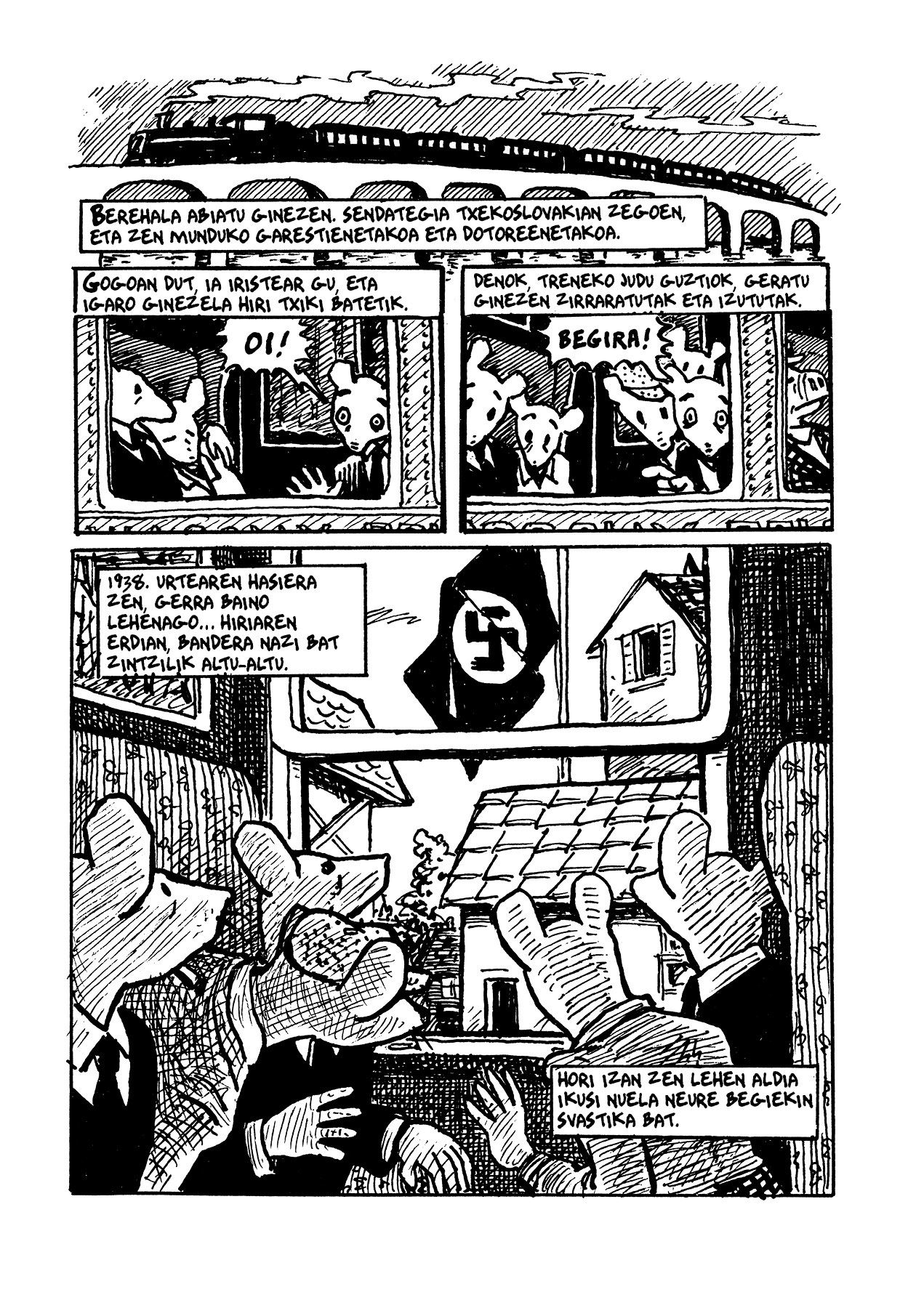Euskaraz irakurri: Julen Gabiriak euskarara ekarri du “Maus”, “irakurleak interpelatzeko gaitasun eternala duen klasikoa”
We can now read in Basque, with the touching pride that those less accustomed to them show in the face of normal things for others, the comic “mouse” (Astiberri, 2022), written by Art Spiegelman and available in Basque thanks to the efforts of the translator and writer Julen Gabiria (Galdakao, 1973), who is sure, as he confesses to us immersed in the movement between stands at the Durango Fair, that the reader of the Basque version will feel the same enthusiasm that “Maus” aroused in him when he read it. read for the first time, in Spanish, about fifteen years ago.
“It is one of the classics of universal literature, and shares several features with the rest of them: the power to remain current over time, and the eternal ability to challenge readers. It will excite the current reader just as much, thirty years ago and I have no doubt that it will also be thirty years from now: he will ask them the same questions”, says Gabiria.

‘Mous’
According to Julen Gabiria, “Maus”, the powerful biography of the Polish Jew Vladek Spiegelman, a survivor of the Nazi death camps, “makes the reader hesitate” in its almost three hundred black and white pages.
Gabiria acknowledges that the task has brought him several headaches, especially due to the fact that in the original version (the comic was written in English) the protagonist, Vladek, did not speak English well. He has been forced to “unlearn” everything he has learned as a translator, “since we are used to reading and writing in the most correct way possible, and I had to turn that around to get the protagonist to speak with a coherent incorrectness “.
Despite the fact that it is a slow-digesting work, Gabiria is “hallucinating” with the response that “Maus” has had in these first hours of the Durangoko Azoka, and hopes that this and other similar works (the Azoka is truly fertile in quantity and quality of comics) help break down prejudices against this format. “It is about another form of literature, in this case graphic, and it is impossible for someone who has read this book not to feel that it is literature, unless they are a totally insensitive person.”
Julen Gabiria calmly looks at the route that awaits “Maus”. “It is a book that has worked in all languages, and in Basque it is having a very good reception. It is a book that will be there, and that will simply reach any lover of literature.”

Source: Eitb
Mario Twitchell is an accomplished author and journalist, known for his insightful and thought-provoking writing on a wide range of topics including general and opinion. He currently works as a writer at 247 news agency, where he has established himself as a respected voice in the industry.











